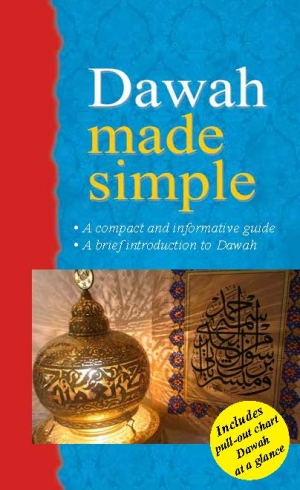The Quran repeatedly mentions Christ. There are many examples in his life and teachings for the believers, one such example being an observation made by him to his disciples:
But I say to you who hear: Love your enemies, do good to those who hate you. Bless those who curse you, and pray for those who spitefully use you. To him who strikes you on the one cheek, offer the other also. And from him who takes away your cloak, do not withhold your tunic either. Give to everyone who asks of you. And from him who takes away your goods, do not ask them back. (Luke, 6:27:30)
Christ has not taught us passivity in these words. This is, in fact, a part of dawah etiquette. A dayee must always possess good behaviour unconditionally. If he were to indulge in retaliation, the normal, favourable atmosphere essential for the performance of dawah would vanish altogether.
The truth is that the ethics preached by Christ to his disciples apply equally to the believers. These are the salient prerequisites of dawah, which the dayee has to adopt in the case of the madu. If a moral code of this nature is not adhered to unilaterally, the dawah process can never be initiated.
Featured Articles
Featured Videos
FAQs
In present times, the condition of the people is that they turn to God and pray to Him when they face a problem in their lives but in dawah work, they become totally unaware of the importance of dua. Whereas dua is related to dawah work in the same way as it is related to other matters of the world. The fact is that dua is an essential part of dawah work. Without dua the task of calling people to God cannot be performed in an effective way.
Dua is not connected only to the madu, rather it is connected to the dayee himself as well. A dayee should constantly make prayer to God for him. He should constantly pray to God to make his dawah effective for the madu. He should constantly pray to God to create such conditions for him as are conducive to performing dawah work in a better way.
The same is true of madu. A dayee is a true well-wisher for his madu. this feeling of well-wishing compels him to pray to God for him constantly. One accepts the dawah only with the permission of God. This is with God’s help that one is guided to accept the message of Truth. All these things require that a dayee should continually pray to God for the guidance of his madu. The Prophet called people to God in the day and prayed to God for their guidance in the night.
Source: Calling People to God
The Quran states: “Call to the ways of your Lord with wisdom and fair exhortation and reason with them in a way that is best. Your Lord knows best those who have strayed away from His path, and He knows best those who are rightly guided. If you want to retaliate, retaliate to the same degree as the injury done to you. But if you are patient, it is better to be so. Endure with patience; truly, your patience is possible only with the help of God. Do not grieve for them, or feel distressed because of their plotting, for God is with those who are righteous and those who do good.” (16:125-128)
Dawah work requires a high degree of seriousness and well-wishing. The feeling of being answerable to God compels man to play the role of a dayee and communicate the divine message. He gives the divine call to people because he is sure that if he fails to do so, he will be held accountable before God on the Day of Judgement.
Bearing this in mind, he naturally adopts that method of doing dawah work where he calls to the way of God with wisdom and fair exhortation and reasons with the addressees in whatever way is best.
By wisdom is meant logic or argument. No dawah work can be effective in the real sense unless it makes full concessions to the addressee’s mind. A call that does not make a concession to the addressee’s mind is an unwise call.
Sometimes it happens that we want to convey the message of God to an individual but apparently, he looks indifferent to it. What should we do on such an occasion? On such occasions, we should adopt the principle—where there is a positive response there is dawah work and where there is no positive response there is dua. That is, in such situations, we should pray to God to guide him to the right path.
Source: Calling People to God
The spirit of dawah is honesty and well-wishing. Honesty means nothing should be added to or mixed with the divine message. Well-wishing here means that those who witness Truth must be impelled, even on a purely unilateral basis, by a concern for the genuine well-being of the madu, those whom they call towards God so that the latter can have no reasonable ground to deny this call.
According to a tradition, the Prophet of Islam once asked some of his Companions to undertake a journey to convey the message of Islam. He said: “Make it easy for people. Do not create difficulties for them. Give them good tidings and do not say such things as turn them away.” (Sahih Muslim, Hadith No. 1732)
This means that when you convey the divine message to the people, it should be in the spirit of well-wishing. You should address them in a manner that is acceptable to them and is not difficult for them to follow. The act of dawah is a two-way affair. On the one hand, the dayee is a true bearer of the word of God, who strives to address the mind of the addressee by making every concession to him. Dawah is not a mechanical announcement. It is entirely an act of love and well-wishing.
The action of peacefully conveying the divine message to others arises from love and well-wishing. It cannot come out of a heart filled with hatred and enmity for others. This is why the Quran commands the dayee to remain patient and unilaterally adopt the way of avoidance of conflict. Dawah and patience are interdependent. Those who are unable to remain patient in the face of the madu’s provocations will never be able to perform the task of conveying God’s religion to His servants.
Source: Calling People to God










